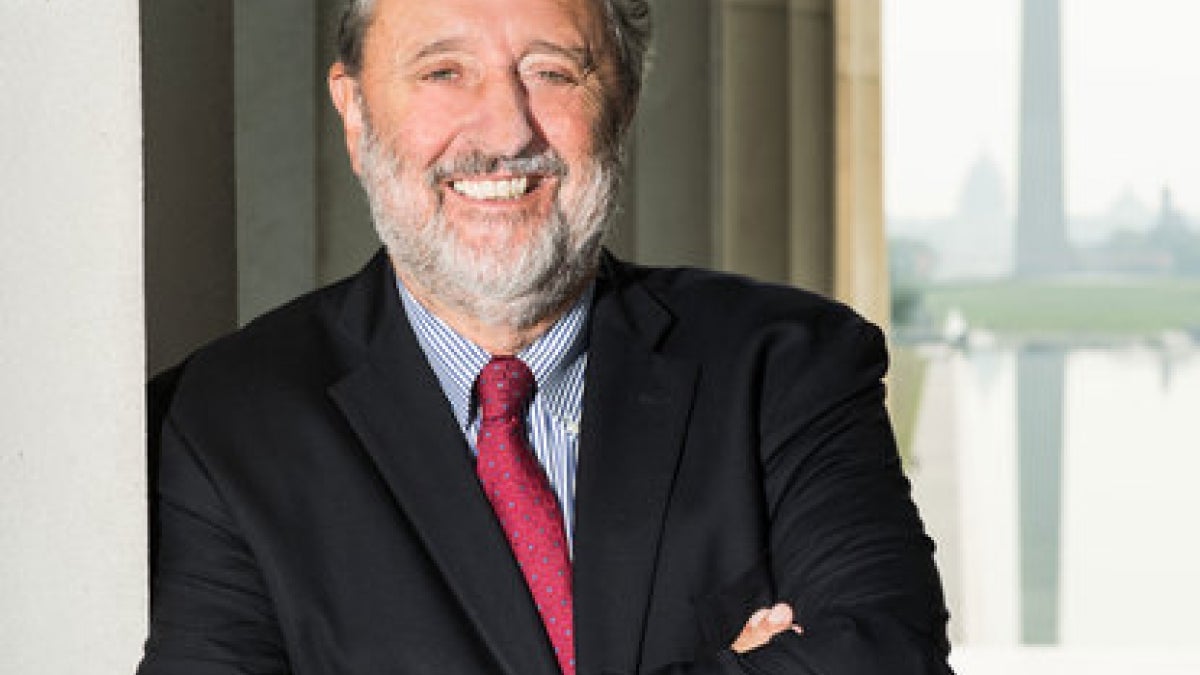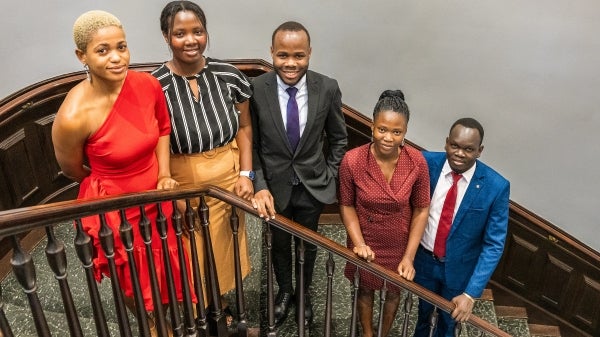Netherlands ambassador speaks at Thunderbird

Honorable Henne Schuwer, ambassador of the Kingdom of the Netherlands.
Thunderbird School of Global Management has long been a place where world leaders, dignitaries and business leaders have stopped in to address students, faculty and the community. A visit on Jan. 23 from Henne Schuwer, ambassador of the Kingdom of the Netherlands to the United States, was no exception.
In the United States for his third assignment on behalf of the Netherlands’ government, Schuwer kicked off his visit with a keynote that brought in students and alumni from around the Valley.
In his opening remarks on "The Silent Partner: The Netherlands’ Role in the U.S. Economy," Schuwer noted that he believes there is a link between Thunderbird’s former role as a training facility for fighter pilots, and its current role as an educator of business leaders who will go out into the world and fight to build relationships.
“You need to see what the world is about and spread what you’ve learned here — the necessity of international trade — to other parts of the world,” he said.
Watch the video of Schuwer's keynote.
Tolerance is the foundation of a good relationship
According to Schuwer, part of building relationships is understanding and tolerating differences.
“The Netherlands accepted Jews from Spain and France, Christian Huguenots when they fled France, and Belgian and Flemish [refugees] when [Belgium] fell to Spain. The business model of tolerance helped make the Netherlands the richest country in the world, because we were accepting of other people,” he said.
“The Netherlands has long been a nation of tolerance,” Schuwer added. “It’s been the key to our success.”
Schuwer said that part of that success can also be attributed to the Netherlands’ long-standing relationship with the United States, even before it became a country. A 1609 expedition in search of a passage to the Far East failed when they realized the Hudson River would not get them there. But, it succeeded in the founding of New Amsterdam, now New York City.
Other facts he gave about the Netherlands' relationship with the U.S. included:
• The Netherlands helped fund the American Revolution by loaning 5 million guilders in 1782, and assisted in financing the Louisiana Purchase with a 13 million-guilder loan.
• More than 850 Dutch companies are active in the United States, such as Royal Dutch Shell, Philips and Unilever, and have invested over $274 billion.
• More than 2,000 American companies have invested more than $723 billion in the Netherlands.
• The Netherlands exports more than $700 billion per year, making it the second-largest exporter in the European Union and sixth in the world.
• It’s the second-largest net agricultural exporter in the world, all for a country of 17 million people that’s the size of Coconino County (which is 1/7th of Arizona’s total size).
• More than 17,000 U.S. service personnel are interred in the cemetery in Margraten, in memory to the thousands of troops who helped liberate the Netherlands from the Nazis in WWII.
Politics makes strange bedfellows
Schuwer said that good international relationships are not built on business alone; politics also play an important role. He noted that this was made apparent during the 2016 presidential election, where international trade was treated as a “bogeyman” by both candidates — that it was bad for America, took American jobs and was bad for the economy. Then-candidate Donald Trump decried the trade deficit, said he would renegotiate NAFTA and was going to leave the TPP.
The ambassador said he believes the U.S. leaving the TPP within the first week of the new administration was a mistake, but does think that NAFTA could use a refresh.
“There are valid reasons to do so. [NAFTA] needs to address many 21st-century issues not covered by the 20th-century agreement, such as intellectual property,” he said. “But I believe it’s inconceivable that Mexico would agree to a big shift in the labor force…back to the U.S. If that’s the ultimate goal, I think you’re in for a deadlock and failure.”
Deficits aren’t all bad
As for the trade deficit, Schuwer said he sees the upside and downside.
“If you’ve got a deficit,” he said, “the other guy is better off. But international trade isn’t a zero-sum game, where the people with the surplus are the winners. It’s got to be a global balance.
“While the United States does have a substantial trade deficit around the world, it has an enormous surplus of investments here. For example, BMW’s largest exporting factory is in Spartanburg, South Carolina, and employs over 8,000 workers. The U.S. attracts an enormous amount of investment. Your trade deficit is in goods, but not services, an important distinction when 80 percent of the American economy is in services.”
International trade is good for international security
With the idea that trade is what keeps countries safe, Schuwer quoted from Thunderbird faculty member, Dr. William L. Schurz: “Borders frequented by trade seldom need soldiers.”
“This is the essence of international trade relations and people trading with each other, and the essence of what you have to learn here,” Schuwer said. “It’s more than trade, it’s building a society where you have more than economic interests, such that war would be impractical.
“Free trade is the precursor for a free world.”
Written by Tim Weaver, Thunderbird Executive Education
More Business and entrepreneurship

Cohort of Mastercard Foundation Scholars poised to become AI leaders in Africa
Arizona State University is celebrating a significant milestone in expanding the university’s global access mission by welcoming…

Networking event turns pitches into partnerships
Perfect timing, quick decisions and electrifying energy are vital aspects of both startup ventures and auctions. In an…

Thunderbird at ASU, W. P. Carey School team up on concurrent master's degrees
Students are now able to take advantage of two world-class schools at Arizona State University, at the same time. The…